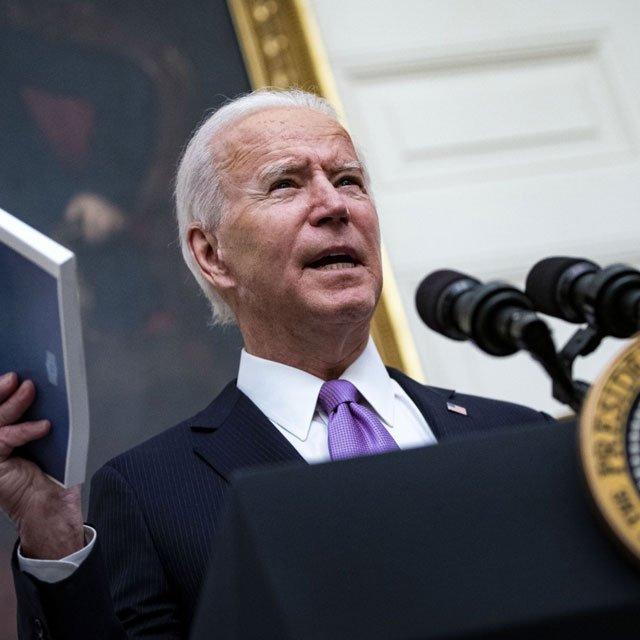Biden Adds New Tax on Wealthy to $5.8T Budget

Defense Programs
Biden is calling for $813 billion in total defense spending for the coming year, with the bulk of the funds — $773 billion — going to the Pentagon in what the White House describes as “one of the largest investments in our national security in history.”
The request backs a 4.6% pay raise for U.S. troops, a significant increase from previous years. The pay raise for this fiscal year is 2.7%. The administration is also requesting a 4.6% pay raise for government civilians.
Funding is included for U.S. nuclear triad and modernization programs, including the nuclear command-and-control and communications network. Northrop Grumman Corp.’s B-21 bomber and the new Columbia-class submarine, built by General Dynamics Corp. and Huntington Ingalls Industries Inc., are high-profile programs to boost the nuclear triad.
Under the White House’s blueprint, defense spending is projected to grow from $813 billion in fiscal 2023 to $843 billion in fiscal 2024 and $851 billion by 2025.
Energy Policy
A host of tax breaks cherished by oil and gas drillers would be repealed — even as the Biden administration prods the industry to produce more domestically to lower prices and help wean allies from Russian fossil fuel.
Tax breaks worth some $43.6 billion over a decade would end, a step unlikely to pass Congress. Among them is a deduction of intangible drilling costs, which allows oil and gas companies to immediately deduct some expenses, such as labor, site preparation and repairs.
Also ending: a deduction for oil and gas production from marginal wells and a percentage depletion deduction that mineral rights owners can claim for a portion of the value of the oil and gas reserves removed from their property.
The White House proposes a new $200 million “Solar Manufacturing Accelerator” to create a domestic solar manufacturing sector that is “capable of meeting the administration’s solar deployment goals without relaying on imported goods manufactured using unacceptable labor practices.”
Appeals to Moderates
Biden used the budget to flesh out his so-called Unity Agenda, a series of proposals he debuted in the State of the Union and has argued should cross political divides. That includes a $33.2 billion proposal for law enforcement, crime prevention and community violence intervention programs that the White House intends as a high-profile counter to the call from some progressives to “Defund the Police.”
Biden also wants $5 billion for an advanced health-research agency he’s championed, which would explore experimental treatments for cancer, diabetes and dementia. The Department of Veterans Affairs would see a historic increase to its budget of nearly one-third from 2021 levels, and $663 million for opioid prevention and treatment programs.
For the Progressives
The president still offered some red meat to his progressive base. While climate spending from “Build Back Better” was omitted, the president does ask to dedicate $11 billion in taxpayer dollars to helping other nations deploy clean energy and weather the growing consequences of climate change — more than 10 times the amount lawmakers doled to the effort in fiscal 2022.
The spending would mark a massive shift for the U.S., following years of unfulfilled promises of climate funding for developing and vulnerable nations.
Overall, Biden is seeking some $50 billion for programs to address climate change, including $18 billion to build the U.S. government’s resilience to a warming world.
Biden also asks for $367 million for the Justice Department’s budget to support police reform, prosecution of hate crimes, and enforcement of voting rights — an increase of more than $100 million from 2021. There’s also money for police body cameras and prison reform, as well as $50 billion for affordable housing construction.
The administration is also seeking more than $200 million more for antitrust enforcement, which White House aides say will help fight inflation and improve competition.
(Photo: Al Drago/Bloomberg)






